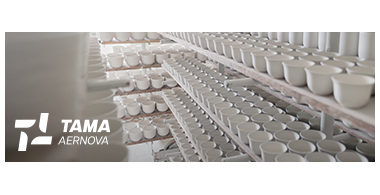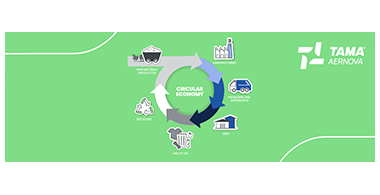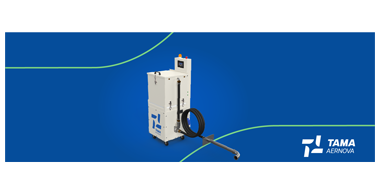
Filtration and air quality: a necessity and a concrete commitment for biomass power plants
The use of biomass as a source of energy supply is a strategy that multiple companies have now adopted both to limit energy costs and to keep in step with the increasingly stringent goals of ecological transition and sustainable development. Although the use of waste materials of organic origin is, from an ethical and economic point of view, an undeniable advantage, it must be nevertheless kept in mind that implementing or switching to particular energy systems implies the need for structural interventions to reconfigure and adapt power plants and heat production facilities to the management of a different kind of fuel.
ENVIRONMENTAL RESPONSIBILITY IS OUR BUSINESS
And this is exactly where TAMA AERNOVA comes in with its expertise, technologies and design experience to first imagine and then make concrete the optimisation of the flue gas filtration chain, in order to remove particulate matter and Volatile Organic Compounds resulting from the combustion of biological matter.
The filtration of industrial fumes is a delicate, complex issue, as well as a precise positioning strategy for our company, which for decades has been committed to researching and developing products that meet reference standards and European regulations on atmospheric emissions, working through Best Available Techniques (BAT).

THE COMPANY THAT GENERATES RENEWABLE ENERGY WITHOUT CREATING POLLUTION
It is precisely with this in mind that we have recently lent our contribution to a food company - with which we share a love for the land and a certain value asset - that transforms around 200,000 tonnes of conventionally and organically grown fruit into juices, drinks, purees and concentrates for the B2C and B2B market every year.
The processes differ depending on what type of fruit and semi-finished product we are dealing with; everything that remains after the raw material's stoning, sieving and pressing steps is considered equally valuable. Organic residues from fruit processing - seeds, stones, cores and peels - are 100 per cent recycled by drying and used to generate renewable energy to be fed into the production chain.
We are therefore talking about a company that implements a circular economy model whereby production waste, which would normally be written off as a loss, becomes a usable resource. Every year, around 30,000 tonnes of organic waste end up in the drying system and, according to the company's own data, this quantity covers at least 25% of the annual thermal energy required to generate the steam that heats the process water and feeds the drying system itself. In addition to saving energy and reducing the company’s ecological footprint, a supply chain organized in this way also allows autonomous, prudent management of what would otherwise have to be classified as industrial waste.

TAMA AERNOVA SOLUTIONS THAT SOLVE THE PROBLEM OF EMISSIONS
The flue gases generated by the feedwater boiler that burns wood chips mixed with fruit waste, dense with ash and heavy residue, are conveyed into the separator cyclone that favors the precipitation of the coarsest particles through the action of centrifugal force and gravity. The fumes exiting the cyclone through the pipes arrive at the filter and, through the pre-chamber that slows the flow and further precipitates the particulate, they arrive at the filter elements of the flue gas treatment line.

The environment is a key factor in the investment policies of this company which has EMAS and ISO 14001 certification, reflecting the implementation of systems that are indispensable for operating according to the logic of sustainability, and measuring the results obtained in terms of percentage reduction in fossil fuel dependence.
Thanks to the expertise and know-how of its engineers and designers, TAMA AERNOVA was able to propose the most appropriate solution for the purpose, in this case also supporting the installation and assembly operations of the flue gas line managed by the contractor.

PULCO AIR: CUTTING EDGE OF PROCESS FILTERS
In the execution of the project, the leading role is assigned to the PULCO AIR vertical baghouse filter (High Temperature Sleeve Filters | Tama Aernova), appropriately configured to handle high process temperatures. The inlet bypass, protecting the bags (filter elements), and the cleaning pneumatic system of the bags controlled by differential pressure switch, supplied as standard, guarantee the system's long-term efficiency.

TAMA AERNOVA's PULCO AIR baghouse filter adapts easily to different applications. The equipment common to all product configurations comes complete with optional extras for the best management of the filter and the interaction of the flue gas line with the production plant. The main variants, in this case, concern: the large dimensions, the type of dust inlet through a single pre-chamber for multiple filter units, the presence of two hoppers complete with discharge screw conveyors, extraction bags from the top of the filter and accessibility to the walkway for sampling atmospheric emissions, electrical tracing to control the temperature of the hopper and avoid the formation of condensation, resistance to high temperatures and the presence of a fire prevention system.
The combination and customization of all these variants determines the absolute compliance of the product to the customer's needs.



Comments